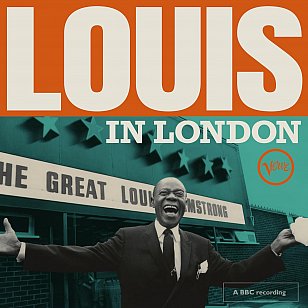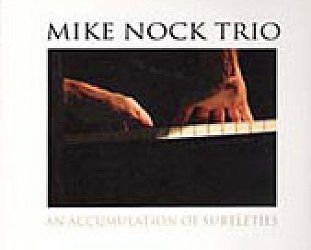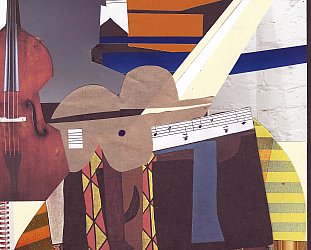Graham Reid | | 1 min read
Mack the Knife

For a man considered a genius of jazz, who radiated humour and goodwill, and recorded one of the most enduring songs of the Sixties (Wonderful World which topped charts after the Beatles' Lady Madonna), the great Louis Armstrong has been a figure who divides assessment.
To some he became a mugging populist Uncle Tom with a grin who squandered his gifts on lesser material; others read him as a sly and subversive jazz artist whose clowning was a cynical jab at his audience which fell for it every time.
The truth is Armstrong was a much more complex man than either of those opinions, a man who was still admired by his fellow musicians even as he took to the charts with Hello Dolly! and cameo spots in movies like 1956's High Society (alongside Grace Kelly, Bing Crosby and Frank Sinatra, a film worth locating for all kinds of reasons).
By the time he arrived in Britain in '68 – with the recent Wonderful World already a standard – he was in the closing overs of a busy life, he died in '71, but pulled out terrific live sessions for BBC Television.
Some of the tunes from those sessions have appeared over the years but here are 13 songs which find the great entertainer reaching back to his earliest days for When It's Sleepy Time Down South (a little uncomfortable in today's hypersensitive political climate), Rocking Chair (which dated back to the late Twenties), Blueberry Hill which he improvises new lyrics and Ole Miss.
Here too are his shameless playing to the gallery (an extended Hello Dolly!, the always charming, sentimental Kiss to Build a Dream On); songs which had become immediately familiar (Mack the Knife, Mame, The Bare Necessities) and concluding with two real crowd pleasers: Wonderful World (as only a 67-year old could sing it) and one he'd played so often he must have disliked it, When the Saints Go Marching In.
If that was the case, you wouldn't know it because Armstrong was nothing if not an entertainer and with his terrific band they swing The Saints out with an instrumental complexity well beyond the reach of your average Dixieland band.
So this album of mostly unheard material hits all the complexity of Armstrong the entertainer, the sentimentalist, the knowing artist and the jazz genius.
And the political man.
He says on introducing You'll Never Walk Alone – seemingly a sop to the British audience which he encourages the TV studio audience to sing along with – as a song that in America they always dedicate “to all the mothers who have sons in Vietnam”.
Louis Armstrong wasn't an easy one to pigeon-hole.
Still isn't.
.
You can hear this album at Spotify here.





post a comment